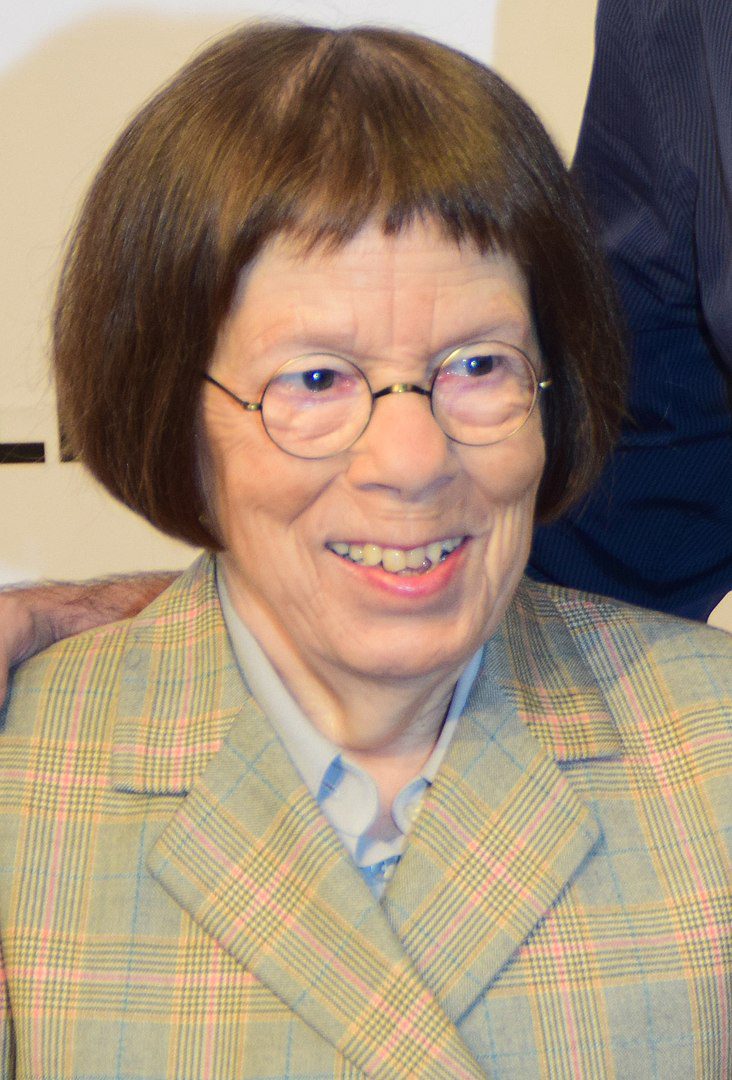Discovering Turner Syndrome Famous People: Success & Inspiration
Are limitations truly limiting? Or can they become the launchpad for extraordinary achievements? It's a resounding yes to the latter; individuals with Turner syndrome, a genetic condition affecting females, demonstrate daily that potential knows no chromosomal boundaries.
Turner syndrome, characterized by the complete or partial absence of one X chromosome, presents unique challenges. These can range from short stature and infertility to learning differences and increased risk of certain health conditions. However, to define a person solely by this condition is to ignore the remarkable stories of resilience, determination, and triumph that emerge time and again. Amongst the many who rise above, these women offer a glimpse into the vast possibilities:
- Ann Romney, the wife of former Republican presidential candidate Mitt Romney
- Jamie Brewer, an actress who has appeared in "American Horror Story" and "Orange Is the New Black"
- Dr. Patricia Bath, an ophthalmologist who invented a device to treat cataracts
- Dr. Joycelyn Elders, the first African American woman to serve as Surgeon General of the United States
These figures, while prominent, represent only a fraction of the women with Turner syndrome making significant impacts across diverse fields. Their successes underscore a vital message: Turner syndrome is a condition, not a definition. With the right support, resources, and unwavering self-belief, women with Turner syndrome can lead fulfilling, impactful lives.
- Breaking What Is The Ari Kytsya Leaked Onlyfans Scandal
- Decoding The Siberian Fallen Angel Statue On Wiki A Guide
The challenges posed by Turner syndrome are undeniable, impacting physical development, reproductive health, and cognitive function. However, it is crucial to remember that each individual experiences the condition differently, and generalizations can be misleading. Early diagnosis, access to specialized medical care, and a supportive educational environment are all vital components in helping women with Turner syndrome thrive.
| Name | Occupation | Birth Year | Reference Link |
|---|---|---|---|
| Ann Romney | Wife of former Republican presidential candidate Mitt Romney, Author, Philanthropist | 1949 | Britannica |
| Jamie Brewer | Actress, Model, Advocate for people with disabilities | 1985 | IMDB |
| Dr. Patricia Bath | Ophthalmologist, Inventor, Advocate for telemedicine | 1942 | National Library of Medicine |
| Dr. Joycelyn Elders | Pediatrician, Public Health Administrator, Former Surgeon General of the United States | 1933 | National Institutes of Health |
Ann Romney, the wife of former Republican presidential candidate Mitt Romney
Ann Romney's journey, marked by both privilege and personal challenges, stands as a testament to resilience. While known for her role in the political arena alongside her husband, Mitt Romney, Ann's story extends far beyond the campaign trail. Her diagnosis with Turner syndrome in her twenties provided a framework for understanding lifelong health challenges, but it never defined her aspirations or her capacity for achievement.
Beyond her involvement in politics, Ann Romney has carved a niche as a successful businesswoman, a compassionate author, and a dedicated philanthropist. Her advocacy for people with disabilities stems not only from personal experience but from a deep-seated commitment to creating a more inclusive and equitable society. She has lent her voice and resources to organizations dedicated to research, support, and empowerment within the disability community.
- Ash Tsai The Untold Story Of The Rising Star Mustread
- Reds Playoff Bound Can The Reds Make The Playoffs In 2024
Romney's late diagnosis highlights a common issue: the often-delayed recognition of Turner syndrome, particularly in individuals with milder symptoms. Her story underscores the importance of increased awareness and early detection, allowing for timely intervention and management of potential health complications. The diagnosis, while initially perplexing, ultimately provided a roadmap for understanding her physical and emotional landscape, empowering her to advocate for her own well-being and inspire others to do the same.
Ann Romney's influence extends to raising awareness about Turner syndrome and the diverse experiences of those living with the condition. She actively engages with the Turner syndrome community, participating in events, sharing her story, and advocating for increased research funding. Her visibility has helped to destigmatize the condition and foster a greater understanding among the general public.
Her contributions extend beyond personal triumphs; they encompass a commitment to improving the lives of others, particularly those navigating the challenges of disability. Her story serves as a beacon of hope, demonstrating that a diagnosis need not be a limitation, but rather a catalyst for growth, advocacy, and lasting impact.
Jamie Brewer, an actress who has appeared in "American Horror Story" and "Orange Is the New Black"
Jamie Brewer has carved a distinctive path in the entertainment industry, not only as a talented actress but as a passionate advocate for inclusivity and representation. Her roles in acclaimed television series like "American Horror Story" and "Orange Is the New Black" have challenged conventional beauty standards and brought much-needed visibility to actors with disabilities.
Born with Turner syndrome, Jamie Brewer encountered societal barriers and prejudices from a young age. However, rather than allowing these obstacles to define her, she channeled her experiences into a powerful platform for change. She uses her visibility to advocate for the rights and inclusion of people with disabilities, particularly within the entertainment industry, challenging stereotypes and demanding greater opportunities for diverse talent.
Brewer's impact extends beyond the screen. She has also made waves in the modeling world, shattering expectations and challenging traditional notions of beauty. Her presence on runways and in fashion campaigns has helped to broaden the definition of beauty and inspire confidence in individuals who may feel marginalized by mainstream media.
Her decision to speak openly about her experiences with Turner syndrome has been instrumental in raising awareness and fostering understanding. She shares her personal journey, including the challenges she has faced and the strategies she has employed to overcome them, empowering others to embrace their individuality and advocate for their needs.
Jamie Brewer's career embodies the power of representation. She is not only a successful actress and model but also a dedicated advocate who is using her platform to create a more inclusive and equitable world for people with disabilities. Her story serves as an inspiration to aspiring actors and activists alike, demonstrating that anything is possible with passion, perseverance, and a commitment to challenging the status quo.
Dr. Patricia Bath, an ophthalmologist who invented a device to treat cataracts
Dr. Patricia Bath was not only a visionary ophthalmologist and inventor, but a trailblazing figure who defied societal expectations to revolutionize the field of eye care. Her groundbreaking invention, the Laserphaco Probe, transformed cataract surgery, making it safer, more precise, and accessible to millions worldwide.
- Innovation and perseverance: Bath's relentless pursuit of a better way to treat cataracts led to the development of the Laserphaco Probe, a device that uses laser technology to dissolve cataracts with greater precision than traditional methods. Her perseverance in the face of challenges, including limited resources and skepticism from colleagues, is a testament to her unwavering commitment to innovation.
- Overcoming adversity: As an African American woman in a predominantly white and male field, Dr. Bath encountered systemic barriers throughout her career. She faced racism and sexism but refused to be deterred, using her experiences to fuel her determination to excel and create opportunities for others.
- The importance of role models: Bath understood the importance of representation and actively mentored aspiring doctors, particularly women and minorities. She paved the way for future generations of diverse medical professionals, demonstrating that talent and dedication transcend race and gender.
- The impact of her work: The Laserphaco Probe has had a profound impact on the lives of countless individuals suffering from cataracts. Her invention has restored sight to millions, improving their quality of life and enabling them to participate more fully in the world.
Dr. Bath's legacy extends beyond her scientific achievements; she was a fierce advocate for telemedicine and bringing eye care to underserved communities. She co-founded the American Institute for the Prevention of Blindness, underscoring her commitment to ensuring that everyone, regardless of socioeconomic status, has access to quality eye care. Her life story is a powerful reminder of the transformative potential of innovation, perseverance, and a dedication to social justice.
Dr. Joycelyn Elders, the first African American woman to serve as Surgeon General of the United States
Dr. Joycelyn Elders' tenure as the 16th Surgeon General of the United States, from 1993 to 1994, was marked by both groundbreaking achievements and controversial stances. As the first African American woman to hold this position, she broke barriers and challenged conventional thinking, sparking national conversations about critical public health issues.
Elders' advocacy for comprehensive sex education, including access to contraception, was particularly bold and often met with resistance. She argued that providing young people with accurate information and resources was essential for preventing unintended pregnancies, sexually transmitted infections, and promoting responsible decision-making. Her stance, while controversial, was rooted in scientific evidence and a deep concern for the well-being of young people.
Her views on drug policy and other sensitive topics also generated significant debate. While some criticized her outspokenness, others lauded her for her courage in addressing challenging issues that were often avoided by political leaders. She consistently prioritized public health over political expediency, even when it meant facing criticism and ultimately, her resignation.
Despite her relatively short tenure as Surgeon General, Dr. Elders left an indelible mark on public health discourse. She brought a unique perspective to the role, emphasizing prevention, education, and addressing the root causes of health disparities. Her commitment to women's health, reproductive rights, and comprehensive sex education continues to inspire public health professionals and advocates to this day.
Dr. Joycelyn Elders' legacy is one of courage, conviction, and unwavering commitment to public health. She challenged the status quo, sparked important conversations, and left a lasting impact on the lives of women and children across the United States. Her story serves as a reminder that progress often requires challenging conventional wisdom and advocating for what is right, even when it is not popular.
FAQs about Turner Syndrome Famous People
Turner syndrome, a genetic condition that exclusively affects females, stems from the complete or partial absence of one of the two X chromosomes. This chromosomal anomaly can trigger a spectrum of physical and developmental challenges, ranging from short stature and ovarian insufficiency (leading to infertility) to potential learning disabilities and an increased susceptibility to certain health complications.
Question 1: Who are some famous people with Turner syndrome?
Answer: While many individuals with Turner syndrome lead fulfilling lives outside the public eye, notable figures who have disclosed their condition include Ann Romney (wife of politician Mitt Romney), Jamie Brewer (actress), Dr. Patricia Bath (ophthalmologist and inventor), and Dr. Joycelyn Elders (former U.S. Surgeon General).
Question 2: What are some of the challenges that people with Turner syndrome face?
Answer: Individuals with Turner syndrome may experience a range of challenges, including but not limited to: short stature (often requiring growth hormone therapy), ovarian insufficiency/infertility (often requiring hormone replacement therapy), potential learning disabilities or difficulties with spatial reasoning, increased risk of cardiovascular problems (such as aortic valve abnormalities), kidney abnormalities, and hypothyroidism. The severity and manifestation of these challenges vary significantly from person to person.
Question 3: What are some of the accomplishments of people with Turner syndrome?
Answer: Despite the challenges they may face, individuals with Turner syndrome have demonstrated remarkable resilience and have achieved success in diverse fields. They excel in areas such as medicine, science, business, the arts, education, and advocacy. Their achievements underscore the fact that Turner syndrome does not define a person's potential, and with appropriate support and resources, they can lead fulfilling and impactful lives.
Question 4: What can be done to support people with Turner syndrome?
Answer: Providing comprehensive support to individuals with Turner syndrome involves several key components: early diagnosis and access to specialized medical care (including endocrinologists, cardiologists, and other specialists), growth hormone therapy to address short stature, hormone replacement therapy to address ovarian insufficiency, educational support and interventions to address learning differences, emotional support and counseling to navigate the challenges of living with a chronic condition, and fostering a supportive and inclusive environment that promotes self-esteem and empowerment.
Question 5: What is the future outlook for people with Turner syndrome?
Answer: The long-term outlook for individuals with Turner syndrome has improved significantly due to advancements in medical care and increased awareness of the condition. With early diagnosis, appropriate treatment, and ongoing support, most individuals with Turner syndrome can lead healthy, productive, and fulfilling lives. Lifespan is generally normal, although careful monitoring for potential health complications is essential.
Question 6: Where can I learn more about Turner syndrome?
Answer: Reliable sources of information about Turner syndrome include: The Turner Syndrome Society of the United States (TSSUS) - https://www.turnersyndrome.org/, the National Institute of Child Health and Human Development (NICHD) - part of the National Institutes of Health (NIH), the Mayo Clinic website - https://www.mayoclinic.org/, and reputable medical websites and publications. It is important to consult with healthcare professionals for personalized medical advice and guidance.
Summary of key takeaways or final thought:
Individuals with Turner syndrome possess the capacity for extraordinary achievements, demonstrating that a genetic condition does not define potential. Early diagnosis, specialized medical care, comprehensive support, and a focus on individual strengths are crucial for enabling individuals with Turner syndrome to thrive and lead fulfilling lives.
Transition to the next article section:
For more in-depth information about Turner syndrome and available resources, please explore the following organizations:
- Turner Syndrome Society - Turner Syndrome Society
- National Institute of Child Health and Human Development - National Institute of Child Health and Human Development
- Mayo Clinic - Mayo Clinic
- Guide To Vegamovies 4k 2024 Is Vegamovies 4k 2024 Safe Find Out
- What Makes Vegamovies4k A Great Streaming Choice Today

15 Famous People Who Thrived with Turner Syndrome Discover Walks Blog

15 Famous People Who Thrived with Turner Syndrome Discover Walks Blog

Top 10 Celebrities With Turner Syndrome You Could Never Think Of